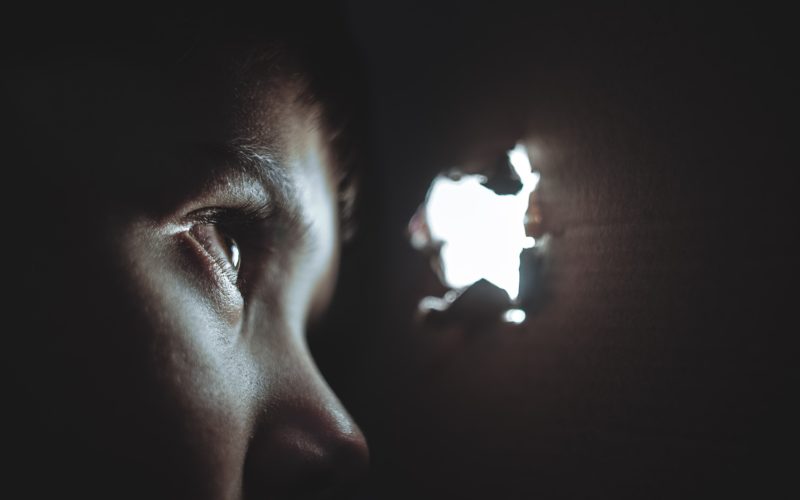Do You Love Me?
“I had been my whole life a bell, and never knew it until at that moment I was lifted and struck.”
– Annie Dillard.
I remember when I first became sick, telling my husband that it didn’t feel like one disease, it felt like a different disease every day.
I didn’t know at the time what was happening to me, or how many pieces of myself my central nervous system was stripping away. I only knew what it felt like… that I was suddenly not a whole person, but a million tiny pieces, and that I didn’t know which piece would slip away next.
Over those first few months, I intermittently lost the use of my hands, legs, sense of touch, sense of taste, ability to speak, clear vision, even at times, the ability to know what was real. I would stay up late and try to write as an escape, ending in the wee hours of the morning sometimes, my hands on my lap, icy cold, curled inward like birds’ claws. I would try to feel them, but they were so far away. My mind would try to tell them what to do, but they spoke a foreign language now, immigrants from across the sea, refugees, hurting, lost. Still, we had to wait for the translator. Sometimes, he just wouldn’t show.
My legs went next. From the hips downward, I became a separate person. Dragging yet weightless, my upper half floating above limbs that were a hundred miles below, yet connected.
The next day, I couldn’t open my eyes. I would try, but they would roll back, my lids would drop, close, flutter, drop again. I kept trying to peek to see if my vision was still there. Light would flash, blurred images, unfocused. I could see, but I was blind. Seeing without seeing.
I woke up hours later without the ability to speak.
The symptoms have shifted since then many times, as has my perspective. I have learned to teach myself how to speak again when that goes. I have learned how to recognize when a seizure is coming so I can leave the room and ride it through. I have learned to navigate even when my sense of touch is impaired, to recognize hallucinations when they happen, to walk with a cane, and accept a wheelchair when necessary, to answer the awkward questions and not let the stares or inappropriate comments sink deep into my heart as they used to.
I have learned (at least on the outside) to laugh off the stigma, the unusualness of my disability – to accept that I have a disability – and that, yes, it defines me, as do so many other things – my faith in Christ, my compassion for others, my courage, my determination, my love for academics and learning, my interests, my idiosyncrasies, my emotions, personality, and soul. Many things, both good and bad, that makeup who I am right now. That makeup who each of us are.
I am just able to feel the pieces.
There have been many times the last few months where I’ve wanted to give up, where there was a level of disappointment that my disease seemed static – not terminal, not in remission – just a constant, ceaseless, existence of this same pain, this same loss and regaining, this same cycle of disability and determination and discouragement and relearning how to do the same things again and again.
There were times (and are still) when my husband had to lovingly bring my own pride and despair to the forefront of my eyes, to show me how much of the grace of God was still present in my life that I was missing, that I was hardening myself to. There were many times I thought, “It will never get better than this.” And loads of stories, neurologists, and medical studies seemed to confirm this resignation.
But that all depends on what you mean by better.
I have gotten better in many ways. I’ve learned how to better manage my symptoms on a daily basis, even while navigating school and living alone, a state away from family, and 5,000 miles away from my husband on deployment. I’ve gotten further and done more with a disability than I ever could have imagined doing just a few months ago. God has brought many seasons of relief and progress, and through the abundant grace and generosity of many people – especially my dear husband and family – I have been able to start school again. Most of all, I am learning to seek out the good things in life, the signs of God’s grace that are always there.
The last few days have brought an unexpected increase of symptoms, a scary, new, morphing of my illness that I hadn’t foreseen. The sudden drop in progress when I had gotten so far was disheartening, to say the least. The pride I didn’t even know I had in the improvements I was making, was hurt and humiliated. Hope that I was close to remission, or at least as normal a life as possible, seemed suddenly torn away like I was starting all over again. Despite the ceaseless generosity and compassion of family and friends, who dropped everything to come and help me, I still had moments where I felt terribly alone.
And so there I was, knees pulled up and crying on the bathroom floor, trying to understand what God was trying to teach me.
I am still not sure yet.
Maybe that’s the whole point.
But there are four things that I have learned to remember in the face of sudden discouragement:
1. Pain Brings a New Lense With Which to See the Brokenness of the World.
Not only have I formed deeper friendships, and experienced mutual encouragement in conversations I never would have known to have before I become sick, but I also have new eyes with which to see physical brokenness and pain.
Maybe God is giving me compassion for people I never knew, a new level of understanding from each small taste of the lives they live every day. Wheelchairs and canes no longer seem like the defining feature they used to. Often they seem like passages to freedom, independence, no different than how stairs and automobiles help us get places we wouldn’t otherwise be able to go.
Freedom, independence, control over our bodies, our nervous systems, our brain waves, are privileges I don’t take for granted anymore. I have the luxury of knowing the control that I used to have over my body, really was not mine after all. Grieve I must, but only over something that never truly belonged to me, to begin with.
2. Pain Brings an Opportunity to Prove Your Courage and Faith.
“Courage,” as C.S. Lewis said, “is not simply one of the virtues, but the form of every virtue at the testing point.”
God seldom gives his children long seasons of life on auto-pilot. With every new grief, every new disappointment, every new surrender, Christ asks, “Do you love me?” And though the tears may stream down our face, the discouragement seep from our core, let us always say, “Yes, Lord. You know that I love you.”
This life was never meant to be our home. This body was never meant to be our final destination. But oh there is joy in that thought if, in it, you see what is so infinitely promised! Christ has come and conquered our pain. He has taken on our burdens. He has borne our sorrows. He has died not only for our active sins but for all the sinful struggle and burden that we bring to our personal loss. And He carries it all.
We confess our small love, but we could not do one fraction of what He has done to prove His own love toward us. And when God loves, unlike us, He acts – He conquers, He saves, He destroys, He redeems, He comes again.
This is just the shadowland. You haven’t seen anything yet.
3. Pain Brings a New Understanding of Your Inherent Dependency
For those of us who have a disability, who must rely on others for our physical needs, who have lost what other people take for granted – we have the luxury of knowing our true dependency. It is a dependency we always had. Now the blinders have been lifted off, and we see it, feel it, touch it firsthand.
Dullness to the brokenness of this world dulls us also to the glory of the next. Do not let the blinders be taken off only to see the bad – allow it to be a greater opportunity to see the grace of God, beginning now, in the promises He gives us for our whole future.
Forever is so much closer than we think.
4. Pain Brings a New Understanding of Our Future Hope
Every story ever told cycles through series of loss. They do so because that is what life is like. But only a fool closes the covers when the story looks bleak. He knows it doesn’t end there. Sam and Frodo don’t stay on Mount Doom. Jim doesn’t remain locked up in the shed. Crusoe figures out how to leave the island. Jean Valjean is redeemed. Christ does not stay in the tomb.
Tomorrow, I ask, what will happen? Perhaps great eagles, or ropes in pie, foreign ships, an acquitted thief, the return of God, a man raised from the dead.
Or perhaps the question one more time: “Do you love me?”
“Yes, Lord,” we say. “You know. You know.”

